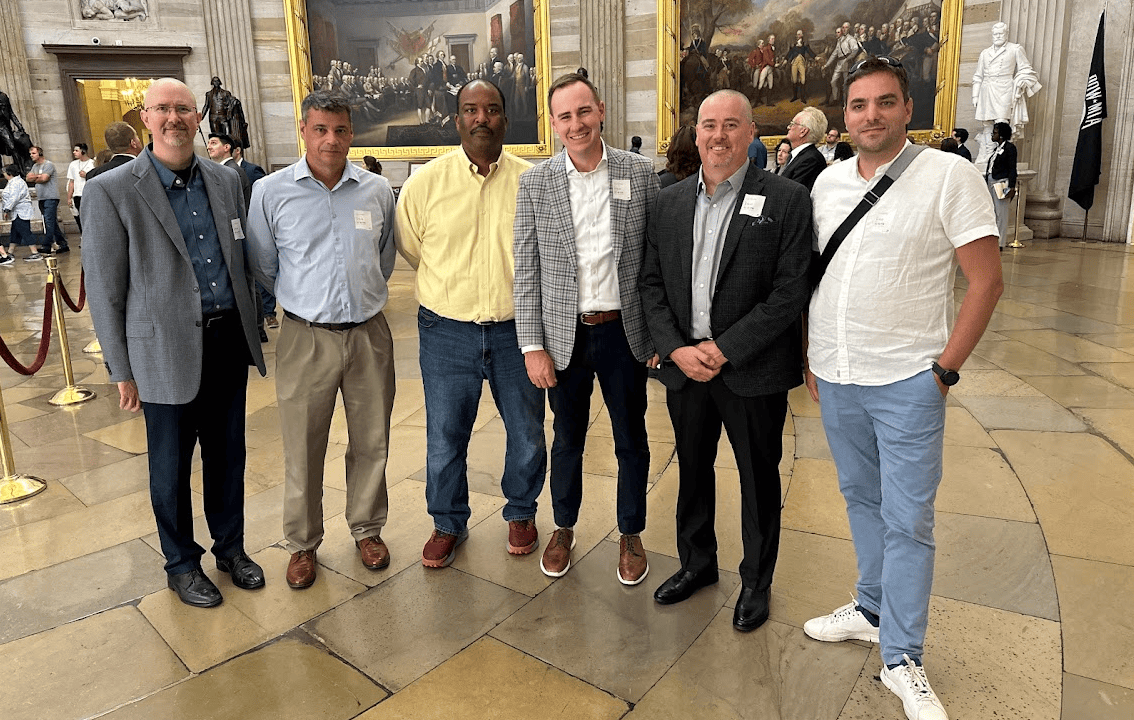
Giving Thanks for Chemistry – November 2023
November 27, 2023
| Chemistry Advocates, This November, we’re thankful for innovations and advancements made by the #BusinessofChemistry. Did you know… 20% Reduction in recordable injury and illness rates since 2010 12% Decrease in Greenhouse Gas Intensity from Responsible Care companies since 2017 $13 Billion plus invested in research and development by chemical companies in 2022 5X Better worker safety rate from Responsible Care companies than the U.S. manufacturing sector as a whole Find more stats on the industry here. We’re also thankful for YOU – our advocates who help spread their voices across the country and make sure we are heard by elected officials, neighbors and friends. Your continued engagement in #TeamChemistry will keep the #BusinessofChemistry strong and innovative for many years to come. We hope you had a great Thanksgiving holiday – and checked out our blog on the chemistry of Thanksgiving! If you haven’t already, read our guide on staying safe and healthy during the holidays.   |
| November was a busy month for Team Chemistry! We had several tours with state elected officials from New York – including New York State Senator Neil Breslin, who visited SABIC’s site in Selkirk, NY, which is home to their ColorXPress™️ Services in the US. The site they visited creates polyphenylene ether resins & plastic pellets that are used in everything from computer mouses to car bumpers. We also had a great discussion in Pennsylvania, where we shared ways folks can get more involved with Team Chemistry and supporting the chemistry industry in their own communities. |
| MEMBER HIGHLIGHT: Evonik’s RHEANCE® One Biosurfactant Enables Sustainable, High-Performing Personal Care Products Sustainability Challenge: As consumers are increasingly focused on concerns around natural and mild ingredients, product safety, environmental friendliness, and sustainable practices in the personal care products market, there is a need for responsibly sourced materials for the personal care industry. Chemistry Solution: Evonik’s RHEANCE® One is a glycolipid-based platform produced from biomolecules identical to those found in nature and is mild to the skin. Using an all-natural biotechnical manufacturing process, RHEANCE® One allows for sustainable personal care products. Sustainability Benefit: RHEANCE® One is 100 percent biodegradable, environmentally friendly, utilizes responsibly sourced raw materials, and is produced and verified with a traceable supply chain to the farming level. Learn more here about chemistry companies that are finding creative ways to boost sustainability.   ACC Launches New Campaign – Write your Rep to say: Reinstate CFATS now! Congress must act quickly to bolster national security & reinstate the Chemical Facility Anti-Terrorism Standards (CFATS). This important national security program expired earlier this year. CFATS is the only federal program focused specifically on reducing security risks at chemical facilities. This program helps protect critical infrastructure from a range of threats, including cyber-attacks. Without CFATS in place: Chemical facilities can no longer vet employees against the FBI’s terrorist database The Department of Homeland Security (DHS) can no longer track where chemicals of interest are manufactured, stored, or distributed. CFATS must be restored ASAP. It has a solid track record of helping companies large and small. We can’t afford to let our guard down. Congress must act quickly to reinstate CFATS to restore protections for chemical facilities, workers, and communities across the country. |
  Senate Hearing Zeroes in on Industrial Decarbonization Earlier this month, the Senate Environment and Public Works Committee hosted an important discussion on strategies to reduce greenhouse gas emissions in the industrial sector. The hearing addressed some of the technologies, policies, and actions necessary to achieve significant progress while supporting U.S. competitiveness and innovation. The business of chemistry is taking action to reduce the industrial greenhouse gas intensity of their supply chains, operations, and products. Even as demand for chemistry products has increased, ACC members have reduced the GHG intensity of their operations by more than 12 percent since 2017. Did you know..? Chemistry and plastics play an essential role in helping society reduce emissions — through exploring and developing technologies like hydrogen, CCUS, and advanced nuclear and providing “inputs” for applications such as solar and wind power, electric vehicles (EVs), high-performance building materials, advanced batteries and more. Meaningful emissions reduction is supported by a portfolio of approaches. Policies should encourage the development and use of energy sources, infrastructure, and manufacturing technologies of all kinds. Click here to read more fast facts on this topic! |
